The Little Theater Society, now the , launched the first children’s theater in Indianapolis when it initiated “The Children’s Hour” in 1927. This program was the main source of theater activity for children in Indianapolis for several decades, providing a different theatrical event each month. In 1929, the Little Theatre Society produced its first play for children, . Within two years, the theater was staging four plays annually for young audiences, using both children and adults as actors.
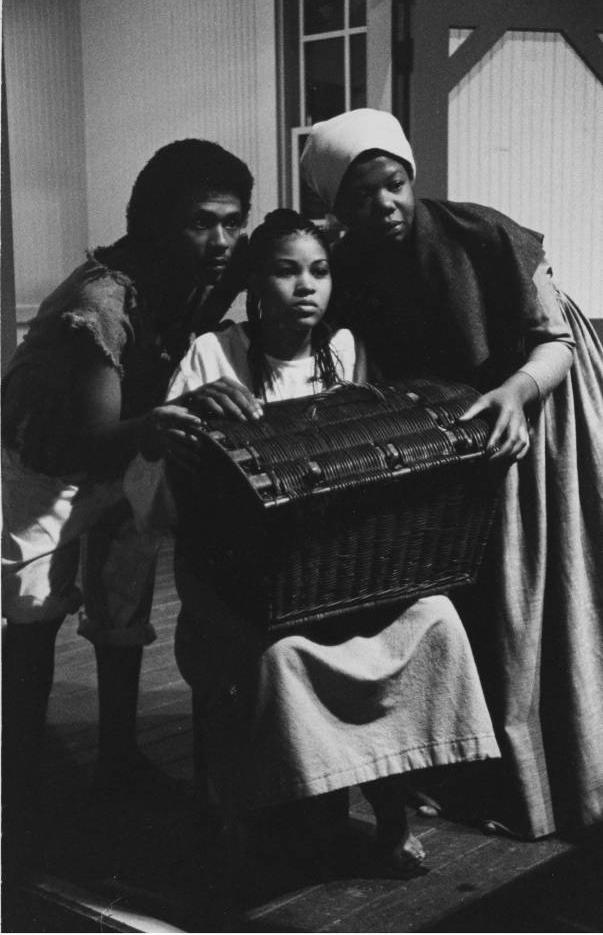
The program expanded by the 1940s to include high school students, and its name was changed to Junior Civic to reflect this new addition. The women’s volunteer organization Junior League, as well as a mothers’ support group, provided volunteer leadership as Junior Civic stretched into the summer months. Gradually, professional staff was added, and classes (both during the school year and in the summer) were expanded. During the 1950s and 1960s, theater for children in Indianapolis grew as other community theaters added plays for children to their seasons.
In 1972, the School of Liberal Arts at (IUPUI) hired Dorothy Webb to launch a summer touring theater company for the Department of Parks and Recreation. Simultaneously, Webb became a full-time faculty member in the IUPUI theatre department and began to offer course work for students in areas of children’s theater, creative dramatics, and puppetry.
Starting in 1976, Webb’s children’s theatre productions toured throughout the state, bringing fully staged productions to schools and community centers throughout Indiana. Additionally, company members, both students and faculty, led workshops in the schools for teachers and children. In addition to IUPUI, Marian College and Butler University also provided productions for young audiences.
Multiple children’s theaters and programs popped up in the 1970s. (IRT), Indiana’s largest professional theater, originated an outreach program in 1973 and was touring to 36 schools in 14 cities by 1976. Although the touring company was eventually eliminated, the IRT subsequently launched a season of three productions for elementary-age children on its upper stage. These performances, combined with mainstage plays for high school students, constituted a wide range of professionally produced theater.
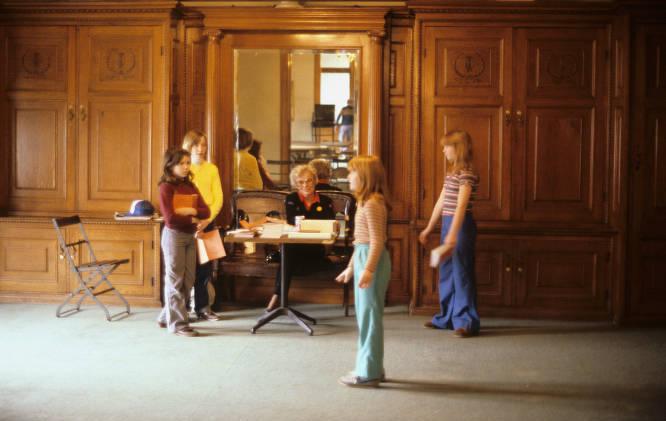
The Ruth Allison Lilly Theater at , named for the second wife of Eli Lilly and Company president and chair Eli Lilly, opened on September 29, 1976, with a performance by renowned opera baritone Robert Merrill. The 350-seat theater has hosted plays, concerts, awards programs, and talks by well-known authors, artists, and scientists. The museum’s in-house actors perform three major professional productions annually as well as other smaller performances.
The Young Actors Theatre, founded by local actress Charlotte Kaufman, also opened in 1976. From 1976 to 2005, the organization provided classic theater training to children. It was re-founded in 2005 with a new focus on “Self-Empowerment Theatre.” The Young Actors Theatre is the oldest and largest not-for-profit youth theater in Indianapolis.
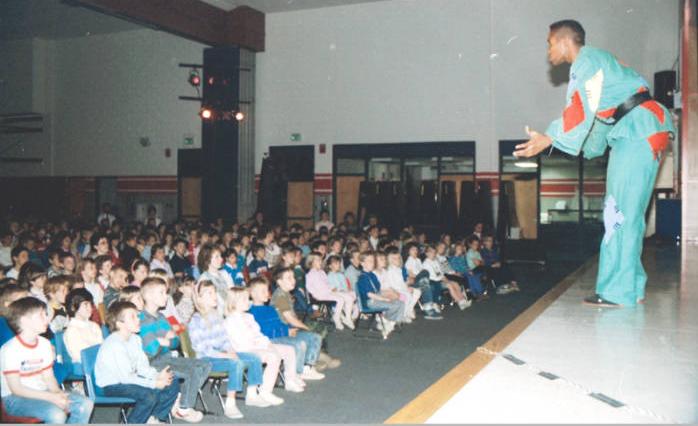
In 1979, the Kid Connection, a touring company of semi-professional performers, initiated tours to area schools. By 1981, Civic Theatre had adopted Kid Connection as its outreach program and toured original plays into schools. By the late 1980s, the program traveled beyond Indiana into Ohio and Kentucky, presenting works that taught a lesson about human relationships. Most of the plays and songs that the Kid Connection company of actors presented were developed by Indianapolis residents and others connected to Civic.
In 1983, Webb initiated IUPUI University Theatre’s biennial national playwriting contest, with support from Melvin Simon & Associates, to promote plays of high quality for children. In 1993, Dean and Pauline Bonderman, who owned Analytical Control Systems, provided funding and it became known as the Waldo M. and Grace C. Bonderman IUPUI National Youth Theatre Playwriting Competition. That same year Janet Allen, artistic director of IRT became involved, and in 1997 IRT became a full partner in producing the event. The biennial competition continued through 2011 and became known nationally as an important venue for giving opportunities to new playwrights and for developing challenging new works of theater for young audiences.
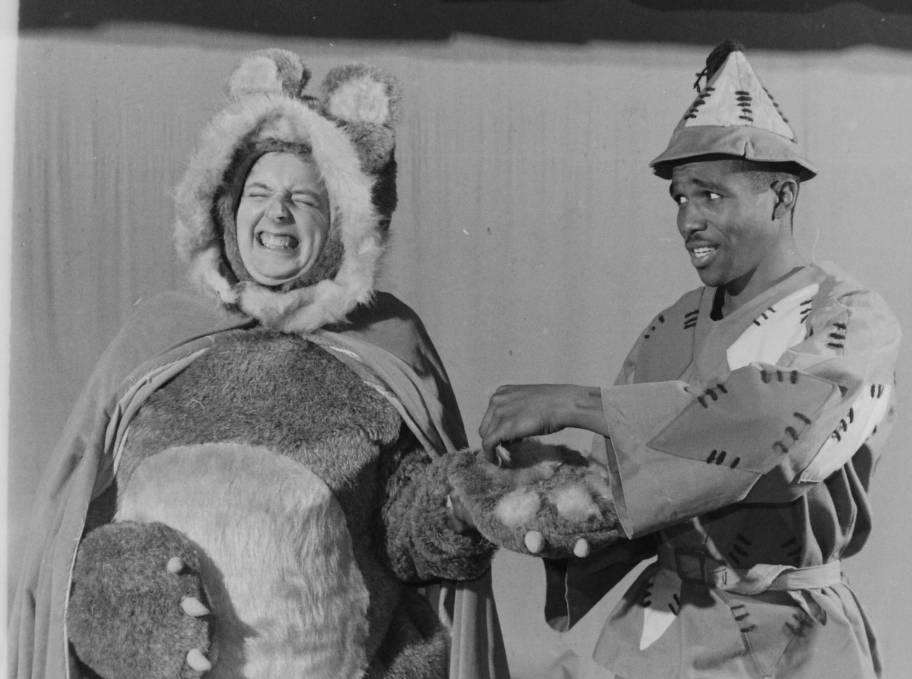
The 1990s began with a new children’s theater. The Asante Children’s Theatre was founded in 1990 to provide children with a place to get involved in the arts and to celebrate African American performing arts. The organization focuses on providing creative arts training while also working to empower its students through leadership development.
Also in the 1990s, both the Civic Theatre and the at Christian Theological Seminary expanded their performance schedules to include matinees suitable for high school and junior high school audiences. Peewinkle’s Puppet Show, which performed short puppet and marionette shows at various locations throughout Indiana, found a home on Henry Street in downtown Indianapolis in the 1990s. In 2016, the puppet show found a new home at the , where it stayed until 2019.
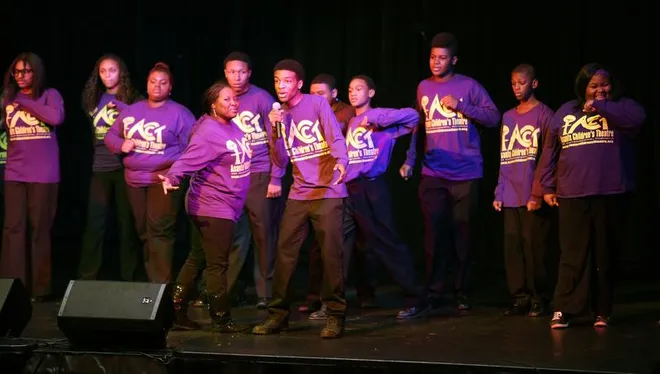
The 2000s saw even more expansion to both theater performances and training for children. The IRT created several programs for children including the Many Mentors Initiative as well as its Young Playwrights in Process program. Beef and Boards dinner theater provided several short performances a year for children that included juice and a snack. The innovative professional equity developed its Revolve series providing a second-Saturday and week-long summer actor training series for ages 13 through 18. Although it abandoned Kid Connection after the mid-1990s, Civic Theatre continues the tradition of its Jr. Civic classes.
Claude McNeal Productions, a nationally-acclaimed performance/theatre education program, founded the ACT Out Ensemble in 1995. Health professionals and educators collaborate to stage original material to engage students of all ages in a unique live social-issues theatre that helps children cope with everyday societal challenges in an entertaining and educational. manner.
Various individuals and agencies continue to offer workshops and courses in theater for young people. Some of these focus on theater for the general development of the child while others specialize in training for professional careers.

Help improve this entry
Contribute information, offer corrections, suggest images.
You can also recommend new entries related to this topic.